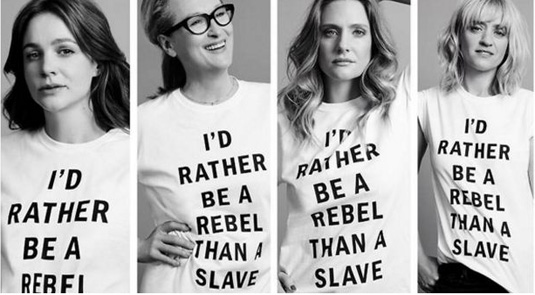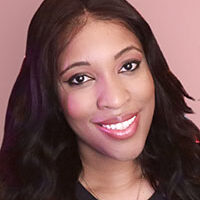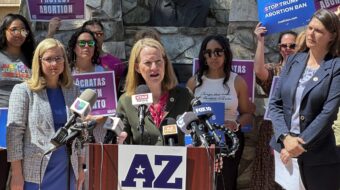
Feminism (noun): the advocacy of women’s rights on the grounds of political, social, and economic equality to men.
Feminist (noun): a person who supports feminism.
To put it simply, feminism at its core is a theory that deals with the belief that women and men should be on equal footing, and not discriminated against based on gender. The movement came about due to people feeling as though women were treated lesser than men based on gender, and had less than equal rights. It seems straightforward enough that most people who believe in equality for all would support feminism, or identify as a feminist (feminism isn’t only for women).
But then you have: Bjork…Lady Gaga…Taylor Swift…Carrie Underwood…Marissa Mayer…Kelly Clarkson…Meryl Streep…Madonna…Sarah Jessica Parker.
And the list goes on, of women in the media spotlight who have gone on record recently, for a variety of reasons, refusing to be associated with the word or the movement.
Has feminism become a four-letter word? Is it now taboo to be considered a feminist?
Is there some sort of confusion on just what feminism is? Has the movement of feminism become so fractured that it’s driving away young (and older) women from wanting to openly identify with it? Not to say that celebrities should ever be the only spokespeople for the masses, yet, with these celebrities – who identify as women – being so comfortable with not identifying with a theory that calls for the equality of women to men, it does make one wonder if this is a growing trend.
Of the names given, there have been a variety of reasons why they don’t identify as feminists. Lady Gaga explained, “I’m not a feminist – I hail men, I love men. I celebrate American male culture, and beer, and bars, and muscle cars….” It seems she equates feminism with not liking men.
Popular singer Kelly Clarkson had mixed reasoning. She said in a recent interview, “No, I wouldn’t say feminist – that’s too strong. I think when people hear feminist, it’s like, ‘Get out of my way, I don’t need anyone.’ I love that I’m being taken care of and I have a man that’s a leader. I’m not a feminist in that sense.”
Well-known actress Marion Cotillard feels that it sows too many seeds of separation. She’s quoted recently in the Evening Standard: “Filmmaking is not about gender. You cannot ask a president in a festival like Cannes to have, like, five movies directed by women and five by men…. For me it doesn’t create equality, it creates separation. I mean I don’t qualify myself as a feminist…. Sometimes in the word feminism there’s too much separation.”
Others, like Madonna, Sarah Jessica Parker, and Meryl Streep apparently feel that the term feminist is too limiting, and would rather be considered humanist instead. Legendary actress Meryl Streep was quoted recently in her interview with TimeOut London (while promoting Suffragette, a film about women fighting for voting rights in the early 1900s), saying, “I am a humanist, I am for nice easy balance.”
Another side of this debate is where women of color stand on mainstream feminism. It can be argued that for some time feminism, in the mainstream, has been a movement dominated by the narrative of white women, a movement that has often marginalized or silenced the plight of women of color. The term “intersectionality,” first coined by black activist Kimberlé Crenshaw in 1989, came about due to frustration by women of color in the movement feeling as though the other ways they faced oppression (sexuality, race, socioeconomic status) weren’t being taken into consideration when addressing the situation of all women.
This sentiment was exemplified tenfold when a recent photo shoot featuring the actresses from Suffragette showed them with t-shirts quoting Meryl Streep’s character, women’s rights activist Emmeline Pankhurst. The quote was, “I’d rather be a rebel than a slave.” This caused controversy, of course, given the fact that at one time enslaved African American women didn’t have a choice on the matter of being a slave or a rebel. One popular tweet about the controversy remarked,”Choosing a tone deaf Pankhurst quote to promote a tone deaf #Suffragette movie. #makessense #whitefeminism.”
So has the term feminism become fragmented and outdated? Has the movement become a lost cause, and perhaps we should look for some other term under which to fight for gender equality?
Well, recent happenings, like the House of Representatives successfully passing a bill freezing funding for Planned Parenthood for the following year, would suggest differently. Or the fact that the wage gap between men and women (not to mention women of color) is still an actual thing. A woman’s right to choose what happens with her body and her healthcare seems to still be something deemed as “debatable” under our current government.
So the controversy over the term feminism, and who it actually represents, may be ongoing. But it’s clear that feminism needs to be discussed because there’s plenty of ongoing struggles that it addresses.
Are you a feminist?

MOST POPULAR TODAY

High Court essentially bans demonstrations, freedom of assembly in Deep South

Zionist organizations leading campaign to stop ceasefire resolutions in D.C. area

UN warns that Israel is still blocking humanitarian aid to Gaza

U.S. imperialism’s ‘ironclad’ support for Israel increases fascist danger at home







Comments